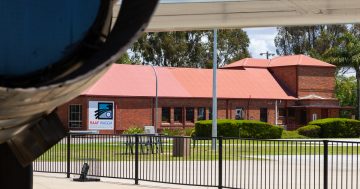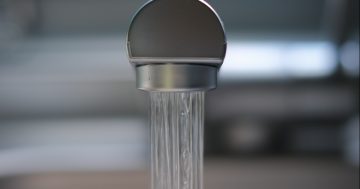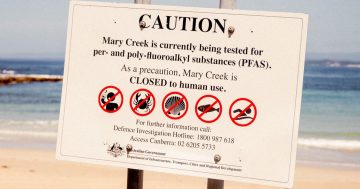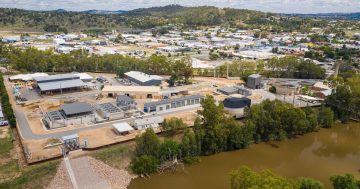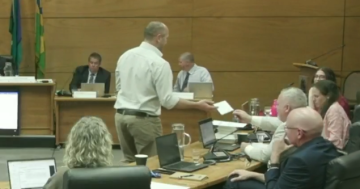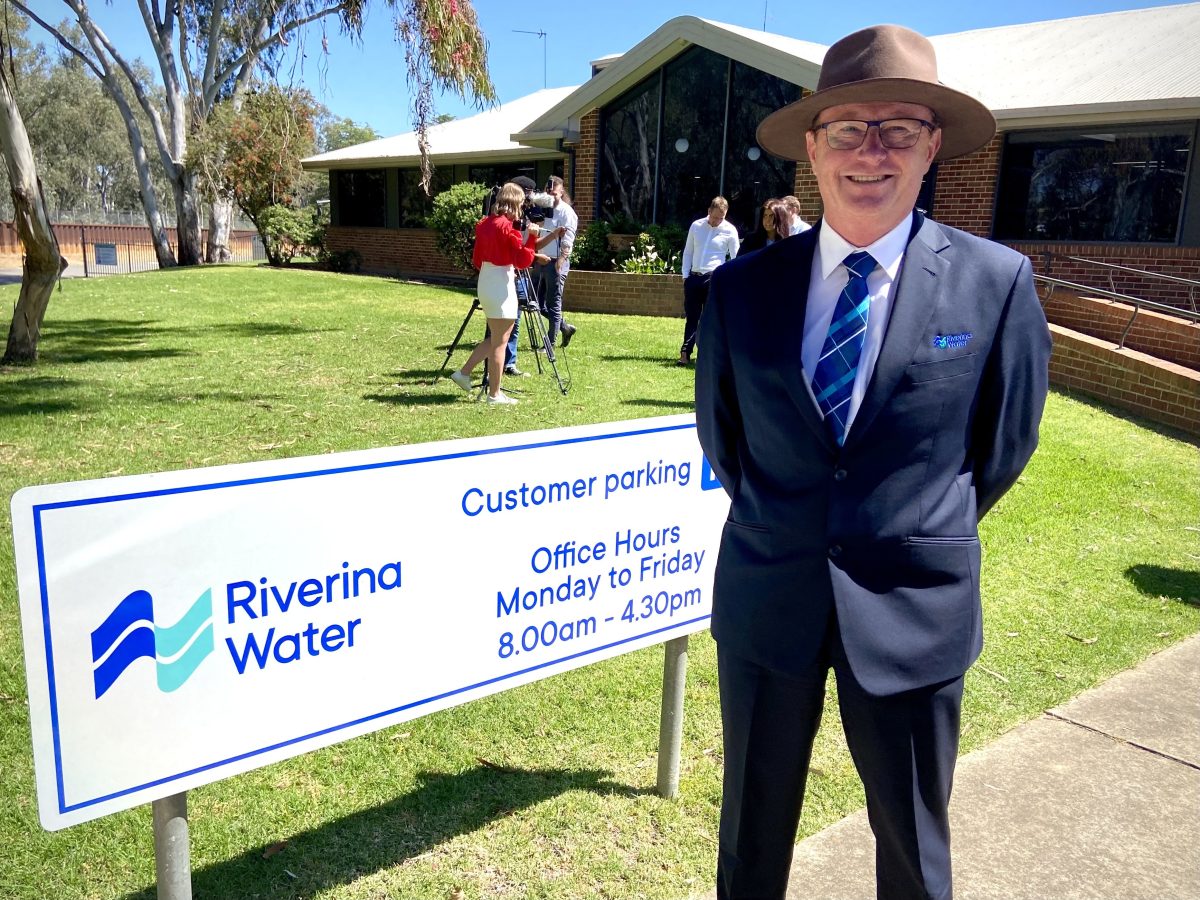
Riverina Water CEO Andrew Crakanthorp. Photo: Chris Roe.
Riverina Water has moved to assure Tarcutta residents of the safety of their drinking water after low-level detection of PFAS in the village’s water supply.
Riverina Water CEO Andrew Crakanthorp said Tarcutta’s treated water supply was safe to drink and within all health guidelines.
“As part of our ongoing proactive management of potential per- and polyfluoroalkyl (PFAS) contamination, Riverina Water participated in a round of expanded testing funded by NSW Health,” Mr Crakanthorp said.
“A detection of the substance PFOS (perfluorooctane sulfonate) was confirmed in the Tarcutta treated water supply at 15 nanograms per litre (ng/L).
“The result is within the current Australian Drinking Water Guidelines limits, but above proposed new guidelines.”
PFAS refers to a group of man-made compounds that have been commonly used in stain-resistant fabrics, non-stick cookware and firefighting foams.
Sometimes called the “forever chemicals”, PFAS break down extremely slowly and have been linked to poor health outcomes.
PFAS were used by Defence in firefighting products at the RAAF Base Wagga for more than 30 years and in May of 2023, some Wagga residents secured a portion of a $132.7 million settlement with the Commonwealth as part of a national class action.
Riverina Water has been monitoring a groundwater ‘plume’ that is moving from Forest Hill in an easterly direction towards the East Wagga bore field.
Tarcutta’s water supply is an independent system sourced from two groundwater bores in the village and following further testing one of the bores was identified as the source and taken offline.
“The health of our community and providing safe drinking water are Riverina Water’s highest priorities and we’ll keep the Tarcutta community informed on this issue,” Mr Crakanthorp said.
“Please be assured we will be working with NSW Government agencies to continue to meet all health guidelines, including investigating the source of the detection and exploring available options.”
As part of the testing funded by NSW Health, all of Riverina Water’s treatment plants have been tested with the exception of Urana, which is not yet online for the summer season.
PFAS have not been detected in the treated water at any other locations in the supply network.







